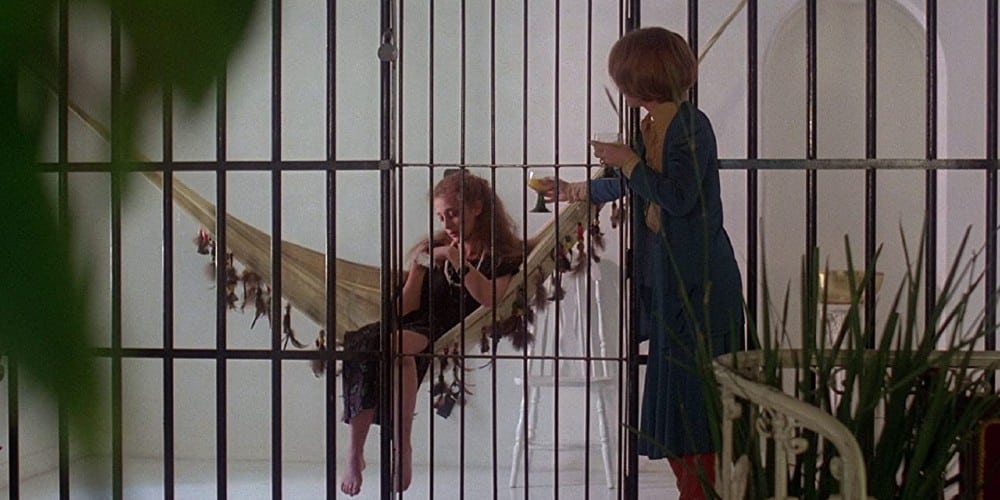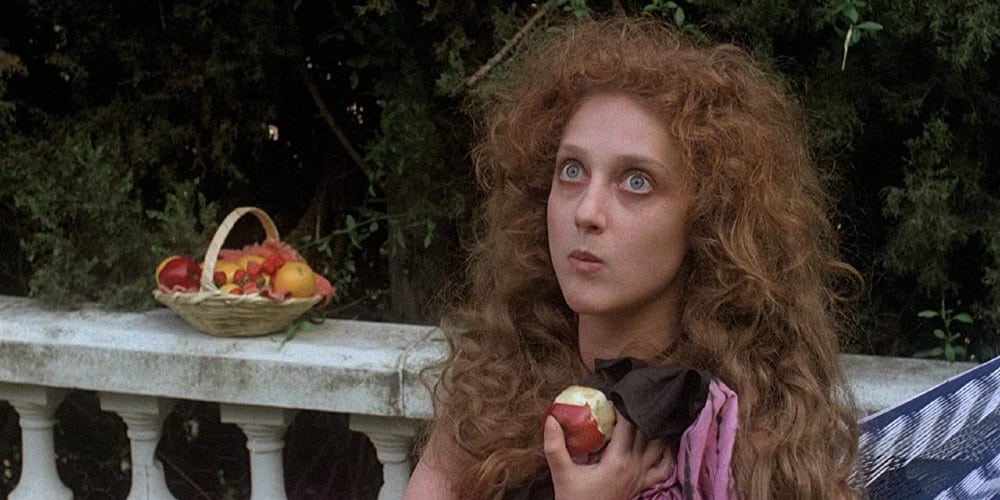Read also:
How to Watch FX Live Without CableHow To Watch AMC Without CableHow to Watch ABC Without CableHow to Watch Paramount Network Without CableKinoKultur is a thematic exploration of the queer, camp, weird, and radical releases Kino Lorber has to offer.
Anyone who’s watched porn from the 1970s knows that the ‘70s were a hairy time. As the “dreams” of the hippie generation faded into an economic depression, many felt alienated from their humanity. This resulted in stringent attacks on social institutions like the church, the government, and “The Man.”
While some studied Marx to understand their present, others turned to monkeys in the hopes of understanding a past that had been either destroyed or left behind. A fresh crop of evolutionary and cultural anthropologists reinvigorated their fields, and with them the public’s interest. Once again, people took up questions of evolution and human sexuality, and in ways that had not been seen since the 1920 heyday of anthropologists like Margaret Mead and Bronislaw Malinowski.
Professor Desmond Morris and his infamous 1967 work The Naked Ape typify this consideration of humanity as the alienated animal. For Morris and other scholars of the time, the same elements that make us human (i.e. society and culture) are the same things that curb, suppress, or repress our animal nature.
By the 1970s there was perhaps no greater reveler in humanity’s animal nature than Hugh M. Hefner. It seems only natural that Hefner would produce an “adaptation” of Morris’ work from high atop Playboy’s Chicago offices.
Directed by Donald Driver, 1973’s The Naked Ape is a burlesque documentary that spins the conventions of an afterschool special into a semi-comic, semi-hard exploration of humanity’s evolution from Homo Erectus… with a firm emphasis on ‘erect’. And yet, it’s more political than might be expected for a film out to get Stone Age rocks off.
This being the early 1970s, the American war in Vietnam sits front and center. It’s repeatedly critiqued throughout the documentary, from its beginning to its melodramatic conclusion. Driver uses ground soldiers’ primal fear for their lives as the ultimate indictment of society as a force that compels its members to do unnatural things. The metaphor frequently gets jumbled up in the film’s complex engagement with Morris’ work, but there are moments where symbol and thesis meet and reverberating pathos makes a point.
Pleasure and the ability to have multiple partners are seen as perfectly natural. (Again: Hugh Hefner, producer.)
These sober moments serve as counterbalances to the more satirical, naughty tone that the majority of the film strikes. Both Driver and Morris are intent on showing that, despite all that society has done to structure what they label “biological drives,” humanity’s animal nature remains.
Driver employs animation to undercut narration about the Church’s religio-biological doctrine of “pair-bonding” (that is, monogamy), its delightfully crude style standing in stark, satirizing contrast to the lofty words of indoctrination. Pleasure and the ability to have multiple partners are seen as perfectly natural. (Again: Hugh Hefner, producer.) The Naked Ape celebrates sexual liberation as both authentic and rebellious.
No queers, though. Its liberation is still codified along heterosexual and cisgendered lines. But that’s the least of the picture’s issues.
The Naked Ape’s final thesis is that man has been alienated from his humanity.
As Everyman soldier Lee (Johnny Crawford) courts his sensual sweetheart Cathy (Victoria Principal), sex is presented as the final culmination of rituals built on the bones of primate mating rituals. Driver establishes a “poerotics” of biology. He frames science and the animalian as a poetic way to penetrate and thus “know” the human body. Clubbing isn’t merely ‘dancing,’ it’s “locomotion.” Bumping and grinding are ancient gestures. Discotheques are public squares and mating spaces.
It’s the institutions that interfere with what comes after the ritual that pose the greatest threat to the naked ape. The Church and its marriage contracts. Capitalism’s appetite for labor. The State’s military-industrial complex. These are “unnatural” horrors that “suppress” our “aboriginal ways.” Try as it does to include ideas from women’s lib, The Naked Ape’s final thesis is that man has been alienated from his humanity. Being “back in the jungles” of Vietnam to fight a war shows just how far the species has strayed.
But such ‘then vs now’ in evolutionary thinking isn’t as liberating as The Naked Ape likes to suppose. As jaw-droppingly displayed in Karen Arthur’s The Mafu Cage (1978), these biological poerotics are supported by deeply colonial structures.
We open on African primitivist art/efacts. The sounds of the savannah play. The camera pans through exotic sprays of plant life. There are glimpses of an empty, looming cage. In the middle of the room, Cissy (Carol Kane), a very white woman, lounges and sways in a hammock.
The daughters of a successful primatologist Cissy and her astronomer sister Ellen (Lee Grant) live in the cage their father used to study primates at home after they returned from Africa. Being the eldest, Ellen got out from under their father’s abusive and oppressive opposable thumb earlier than Cissy, who remains both psychologically nostalgic and traumatized by her time in Africa.
Cissy is, effectively, a second full-time job for Ellen, one who frequently impedes her career and romantic life. Though she may seem naive and demure, Cissy has a dark and aggressive side. When this rage and violence aren’t directed at Ellen, they’re inflicted on Cissy’s poor “Mafus”, the primates brought for her to live in the cage as pets and artist’s models. The Mafu Cage tracks Ellen’s breaking point and Cissy’s final cataclysmic undoing coded clearly as a “descent” into “savagery.”

Throughout the film, the specter of Africa haunts all of Cissy’s misdeeds. Her infantilism, incestuous desires, and senseless violence are each seen as residuals from growing up on “the Dark Continent.” As the intensity ramps up, most of the violence is backed by a soundtrack of natural and ritual African sounds, as though these are an aural explanation for how such a precious creature could be so possessed. The darkness has touched her, possesses her, and will not let go.
But this background noise soon rises from Cissy’s subconscious and manifests on her skin. She darkens her skin and matts her hair with clay while wearing a so-called “traditional African” costume to commit her climactic atrocity. Her blackface is directly linked to her violence. As The Mafu Cage comes to a close, Cissy “devolves” further into the inhuman, finally becoming the object of study, the animal chained in a cage.
The racism overshadows any good work being done. Taken in isolation both Kane and Grant are giving their all, swinging from one melodramatic extreme to another. Grant’s performance as Cissy’s beleaguered caretaker who just wants to be free is devastating. Kane, especially with that iconic hair, is wild but finds gentle moments of humor in Cissy. As two venerable stage actresses, Kane and Grant’s characterizations feel total. The film around them is colonialist, racist noise.

If the incestuous hammock humping wasn’t a giveaway, The Mafu Cage is based on a French “avant-garde” play, and it retains the theatrical quality with much of the action happening just between the sisters in their living room. The existentialist elements of The Mafu Cage — Ellen’s emotional pull between duty and liberty, Cissy’s psychological pull between past and present — are in keeping with similar questions from The Naked Ape.
Both of these films show that some in the 1970s were turning to biology and anthropology for a diagnosis of social discontentment. These fields reaffirmed a cultural sense of the authentic, that our true humanity and oneness with nature is a paradise lost, deviated by society. Both of these films believe that our animal nature is still within us, waiting to burst wild like the unregulated force it is. Most importantly, both films believe that these barriers can be broken and that we can return to a more primeval relationship to (human) nature.
The trouble is there are people already “there.” Whether in the jungles of Vietnam or the savannas of Africa, people already live in the places these white characters “return” to. In characterizing proximity to the land and removal from “modernity” as primal, even animalian, both of these films paint indigenous peoples currently living in these environments as near-animals.
The proximity to the land and the so-called “savagery” of indigenous people is simultaneously romanticized and reviled in both of these films.
As the naked apes display their senses of locomotion in a discotheque, interchanging images of African, Native American, Pacific Islander, and primate dance cut in, making a direct linkage between animal and “primitive.” As Cissy becomes more violent, she literally gets darker—connecting Africanness with wanton rage. The proximity to the land and the so-called “savagery” of indigenous people is simultaneously romanticized and reviled in both of these films.
These films show that during the global decolonial and revolutionary struggles of the 1970s, white folks were still grappling with their sense of social Darwinism. While evolutionary anthropology has a lot to offer us in terms of a unifying connected sense of humanity, films like The Naked Ape and The Mafu Cage are stern reminders not to put evolution on a sliding social scale. Each, in their own way, reveals the uncertainties and anxieties that enter the white cultural imagination once “civilization” and their place within it are called into question.
The Naked Ape and The Mafu Cage are available on Blu-ray and DVD from Kino Lorber.